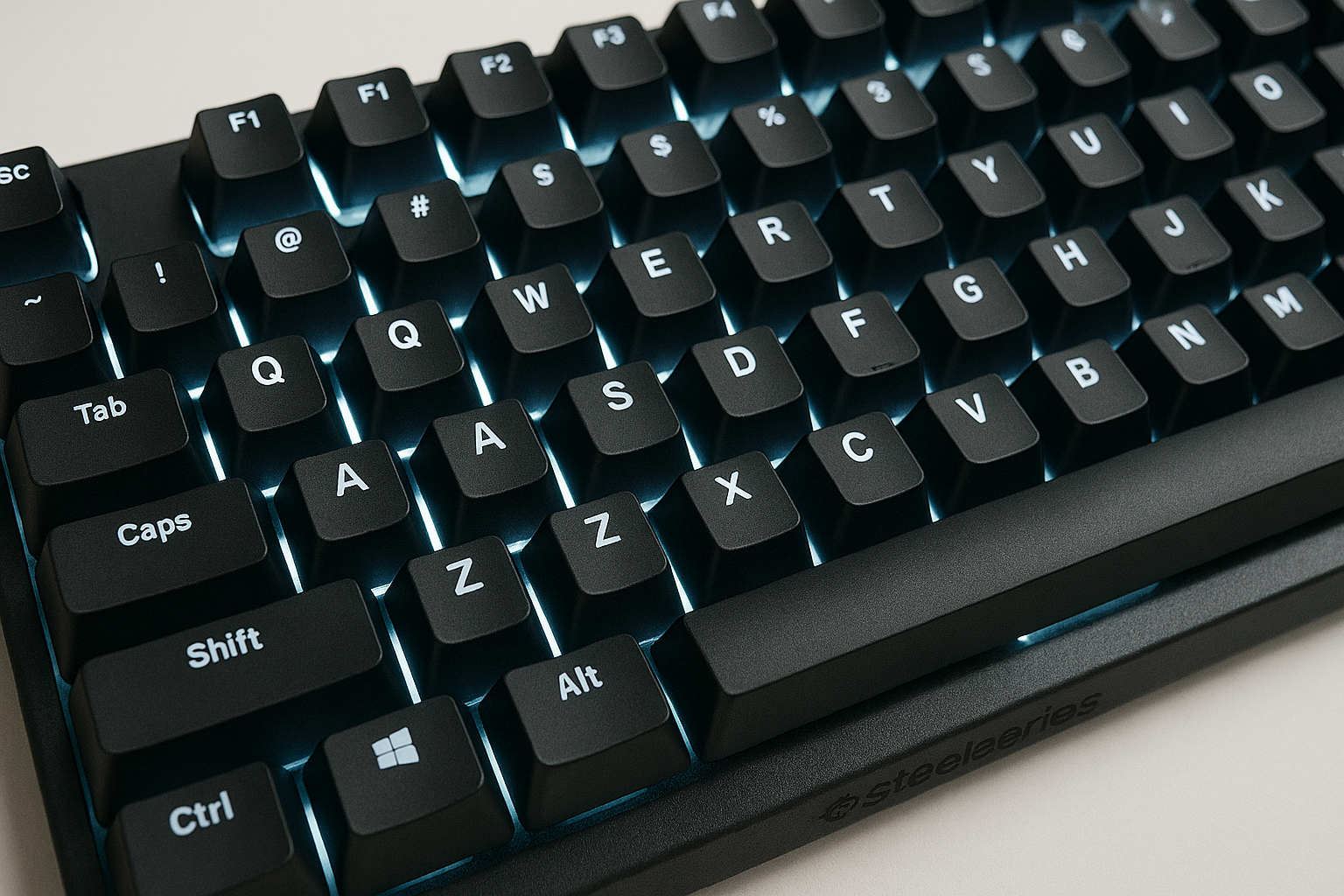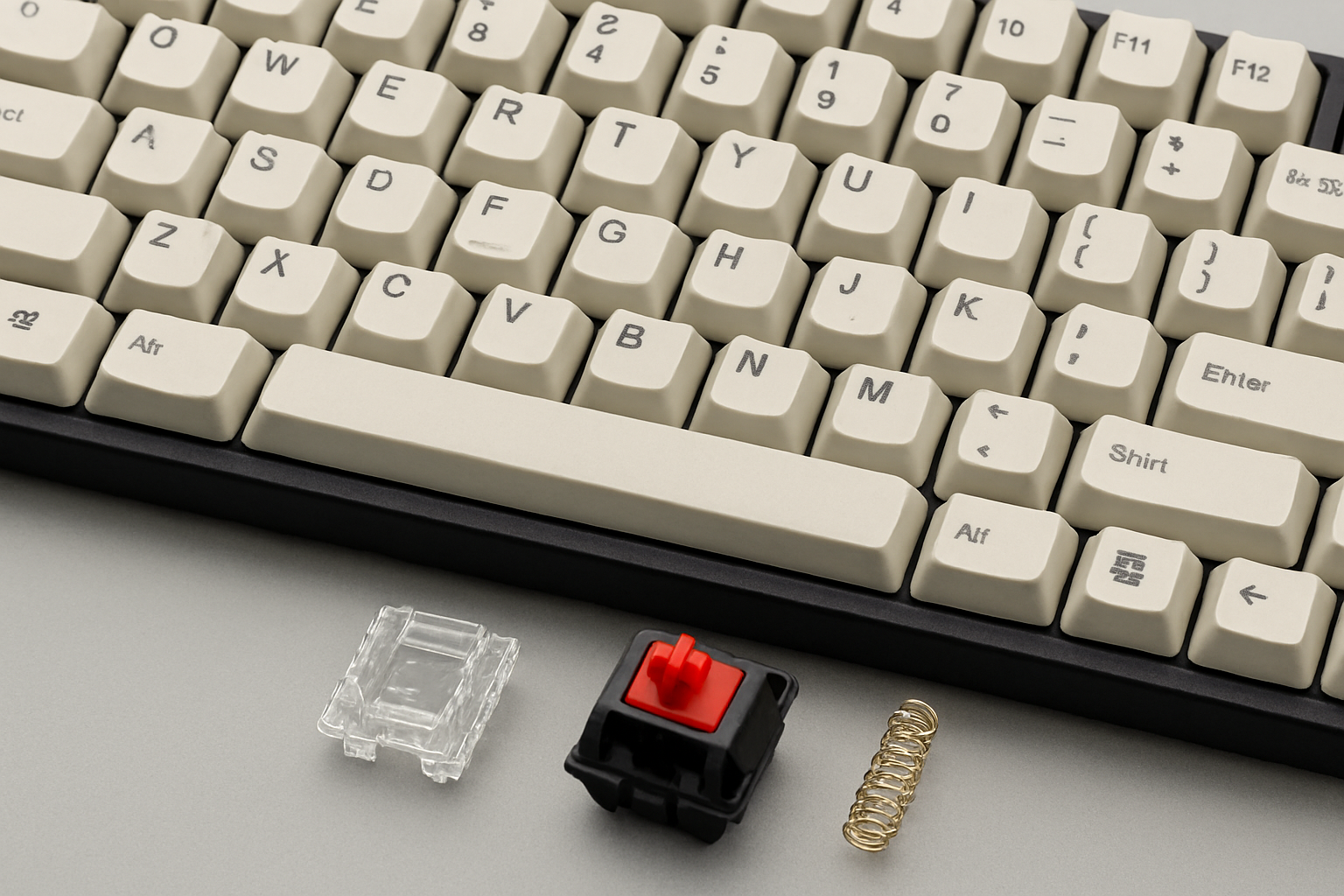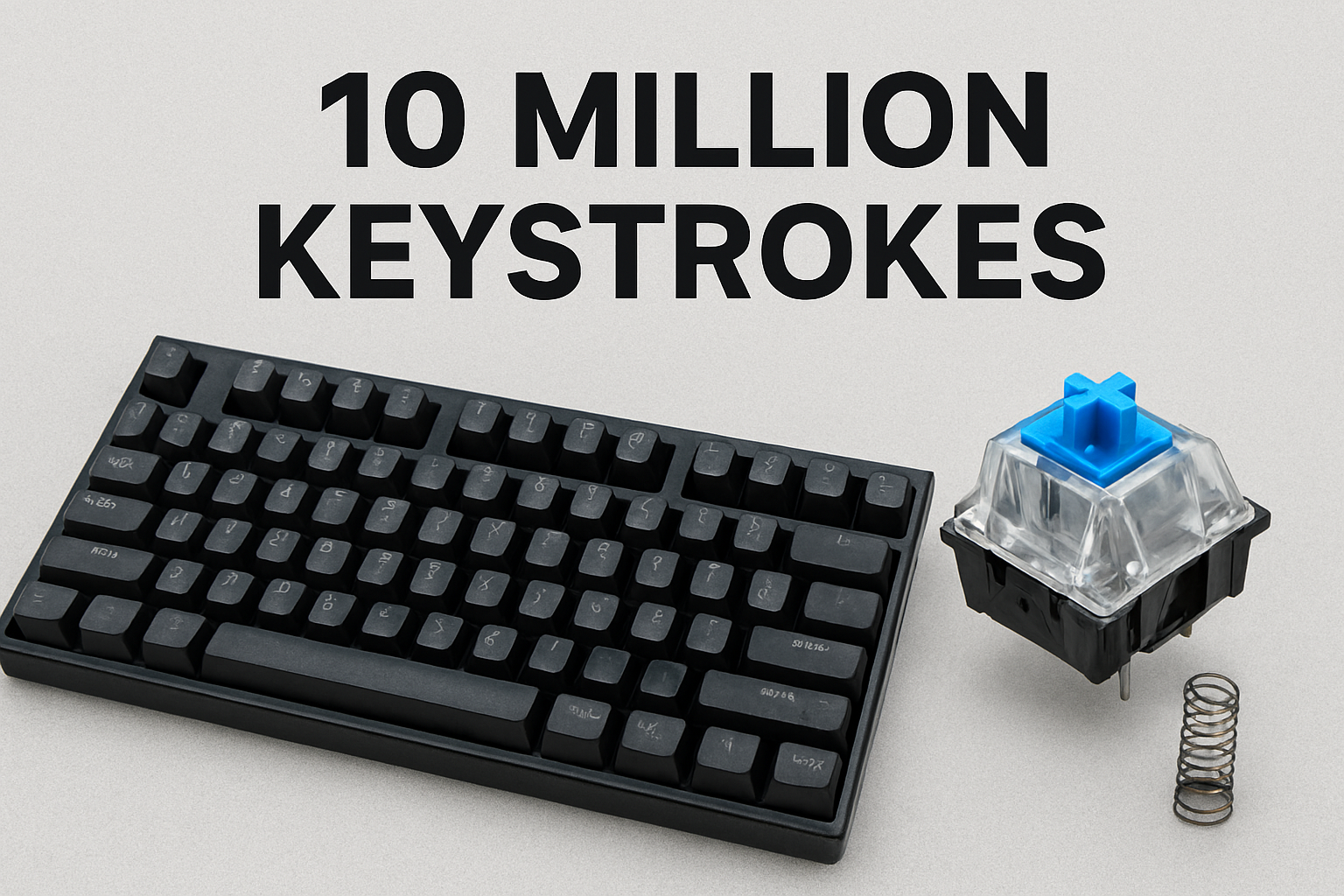Explanation Needed: How do Mechanical Keyboards work?
The keyboard is the primary peripheral that connects your human hand to the computer. Its core function is to translate physical keystrokes into digital signals. There are two types of keyboards: membrane and mechanical, with the latter being more popular among enthusiasts. With that said, let's direct our attention to the Mechanical keyboard, because its function is unique.
In short, the mechanical keyboard operates by utilizing individual physical switches beneath each key, which register keystrokes with precision and provide tactile feedback.
Let's take a deeper look at how the mechanical keyboard functions and why it's favored by many.
The Keyboard’s Core Mechanism
Each key on a mechanical keyboard has its own dedicated Switch. It includes a housing, a spring, and a stem that moves when pressed by users. Once the key is pressed, a stem moves downward, compressing the spring. When a certain point is reached, better known as an actuation point, the Switch then sends a signal to the computer to register the keystroke.
A reset point is established after releasing the key; the spring then pushes the stem back up past the reset point, preparing for the next press.
There are Different Types of Switches
Mechanical switches on a keyboard come in various types, each offering a unique feel. There is the linear type with a smooth, no-tactile bump that is quiet. The Tactile type has a noticeable bump with a moderate sound. Finally, there is the Clicky type, which features a bump and an audible click with a loud sound.
The Benefits of Using Mechanical Keyboards
There are several benefits to using mechanical keyboards. Firstly, the switches are durable; most are rated for ten million keystrokes, by far outlasting membrane keyboards. Mechanical keyboards are ultra-responsive, featuring faster actuation and reset points, making them ideal for gamers and typists who require rapid input.
Most mechanical keyboards offer customization options for users, which include keycap swapping, switch changes, and programming macros. The most significant benefit of them all is Tactile Feedback. The physical sensation helps reduce typing errors and hand fatigue over long sessions.
Why do People Prefer Mechanical Keyboards?
Each Switch on a mechanical keyboard has its own dedicated Switch. It includes a housing, a spring, and a stem that moves when pressed by users. Once the key is pressed, a stem moves downward, compressing the spring. Once a certain point is reached, better known as an actuation point, the Switch then sends a signal to the computer to register the keystroke.
A reset point is established after releasing the key; the spring then pushes the stem back up past the reset point, preparing for the next press.
The Benefits of Using Mechanical Keyboards
There are several benefits to using mechanical keyboards. Firstly, the switches are durable; most are rated for ten million keystrokes, by far outlasting membrane keyboards. Mechanical keyboards are ultra-responsive, featuring faster actuation and reset points, making them ideal for gamers and fast typists.
Most mechanical keyboards offer customization options for users, which include keycap swapping, switch changes, and programming macros. The most significant benefit of them all is Tactile Feedback. The physical sensation helps reduce typing errors and hand fatigue over long sessions.
Why do People Prefer Mechanical Keyboards?
From personal experience, I, and many users alike, prefer mechanical keyboards for good reason. The typing experience is enjoyable with a satisfying feel and sound of the mechanical switches. Most mechanical keyboards have better ergonomics, providing feedback that reduces strain and improves posture with a proper setup.
The aesthetics and sound come in various forms. From whisper-quiet to loud and clicky, mechanical keyboards offer a range of ambiance suited to different environments and usage.
Mechanical keyboards offer a compelling mixture of performance, durability, and tactile satisfaction. With each switch beneath each key, they provide precise feedback, a customizable feel, and long-lasting reliability—often rated for tens of millions of keystrokes. Whether you’re a gamer seeking responsiveness, mechanical keyboards can elevate typing far beyond the ordinary.








